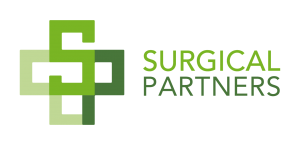Paperless business tactics are coming full circle, as many companies are saving money (and the environment) by using cloud-based services. Likewise, medical practices can specifically benefit from a paperless approach. Your medical practice management software is likely already on "the cloud" and services related to it can be quickly and easily integrated, leaving room in the budget for improved patient care and technology development.
Security and Protection
Many still assume that cloud-based storage is unsafe and vulnerable to outside attacks. However, both web-based and on-site information are subject to security advantages and disadvantages. Cloud-based data may be more difficult to track and find the attacker, but frequently there is a data trail that can be followed. With any PMS protected storage, security is a top priority. Should their system fail to protect against security breaches, the damage done to their business's reputation can successfully render their service ineffective and unfit for use. According to Health IT Security, the leading cause of data breaches are employee error. You carry these employee risks with both on-site and cloud based storage. By training your staff on the latest security updates, you will keep your practice, and it's patient's info, safe.
Evolution of Core Software Using Cloud Services
Many medical practices have already been using web-based storage for their data. Beginning with in-house servers that host this data, medical practice management software has evolved from on-site storage to hardware in data centers, to virtual machines, and finally, to web-based applications on their own cloud servers. With this evolution, core software has made the jump to paperless data transfer and storage in several major leaps. Paperless data storage has allowed for practice management to become easier and more organized by centralizing data and securing it, while still allowing for those in control of the data to have the convenience of ease-of-access through the internet.
Advantages of Web-Based PMS
A large amount of data is shared over your practice management software every day, therefore a cloud-based PMS makes more sense than having locally stored data. With cloud storage, there is no need for a server infrastructure or licensing for terminals and databases. All of the information can be accessed from one point and the provider is in full control of the data at all times. Some cloud-based PMS services, like Helix, have already planned to integrate Surgical Partners, thus, making changeover relatively painless. Others, like Healthkit and eClinicalWorks, are still in discussions about the specific integration. Wherever there is an internet connection, data stored on this cloud can be accessed and transferred, making long-distance data transfer simple and cost-effective.
Disadvantages of Web-Based PMS
Though a cloud-based PMS is logical for a large medical practice, some disadvantages do exist. A strong internet connection is required to process large amounts of data on a daily basis, and weak connections can make transfer difficult and slow. Although leaving only one access point open is secure and safe, a second opinion is difficult to get through only one portal. Many cloud-based PMS services are still new to the market and need to mature and develop before being easily integrated into a medical practice's system.
Web-based services are becoming commonplace in medical practices, allowing for reduced costs and a more intelligent approach to securing data. Even sensitive data can safely be stored with a viable PMS service, and following thorough security procedures easily minimizes the risk of a data breach, posing no significant weakness in cloud-based storage versus on-site storage. Paperless medical practice management can be readily installed with little difficulty, allowing practice managers to focus on important tasks, such as quality management and marketing.
For more information, contact us today.



